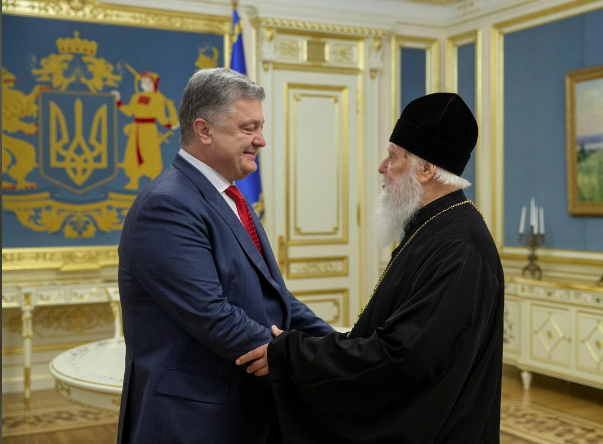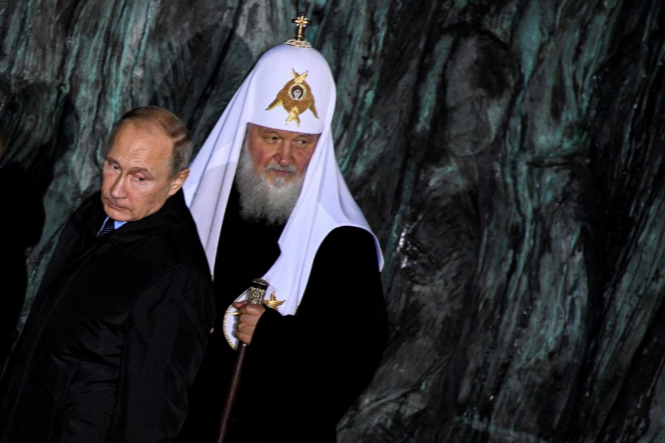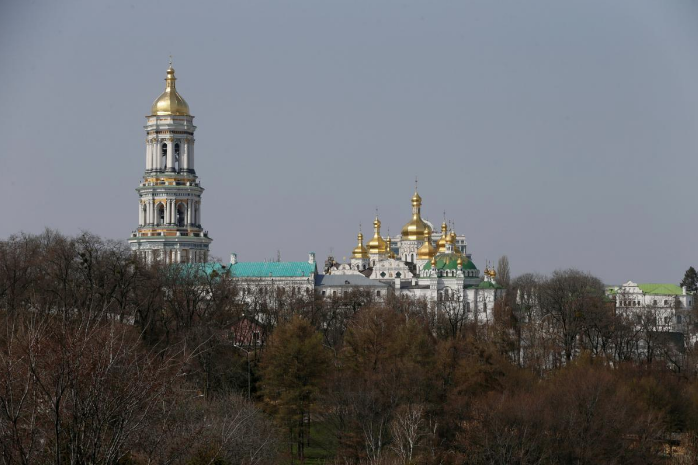How will the Orthodox Church deal with the Ukraine schism?
It's hard to overestimate the significance of the breach between Moscow and Constantinople over Ukraine.
Last Thursday Ecumenical Patriarchate based in Istanbul – ancient Constantinople – agreed to establish the Ukrainian Orthodox Church (effectively the branch loyal to Kiev) as an 'autocephalous' or self-governing church, independent from Moscow. It also revoked the excommunication of Patriarch Filaret, its head, who had been sanctioned in 1992 for his 'cruel and arrogant attitude to the clergy' among other things.

The Russians are furious, both Patriarch Kirill and Vladimir Putin, and yesterday, in Minsk, the Russian Orthodox Church (ROC) resolved to sever ties with Constantinople completely. It accused Bartholomew of overstepping his authority and behaving like a pope.
Consequently, says the ROC's communiqué: 'From now on until the Patriarchate of Constantinople's rejection of its anti-canonical decisions, it is impossible for all the clergy of the Russian Orthodox Church to concelebrate with the clergy of the Church of Constantinople and for the laity to participate in sacraments administered in its churches.' Furthermore, clergy or bishops moving from the 'canonical' (Moscow-approved) church to the 'schismatics' (Kiev), or even sharing communion, 'is a canonical crime involving appropriate suspensions'.
'In a situation of the deep undermining of inter-Orthodox relations and full disregard for ages-long norms of church canonical law, the Holy Synod of the Russian Orthodox Church believes it her duty to come out in defence of the fundamental traditions of Orthodoxy, in defence of the Holy Tradition of the Church substituted by new and strange teachings on the universal power of the first among the Primates,' says the statement.
This is apocalyptic language, and may herald hundreds of years of schism (Orthodoxy thinks in centuries). However, it represents the latest round in a battle that has gone on for decades. The Ecumenical Patriarch has always been seen as first among equals in Orthodoxy, a status increasingly resented by the much bigger and richer ROC. It was the ROC whose withdrawal scuppered the Pan-Orthodox Council in Crete two years ago, Bartholomew's great project. It would not be fair to describe this as revenge, but if it were, Constantinople could have struck no heavier or more satisfying blow. Historically, culturally and religiously, Russia has seen Ukraine as Russian. Bartholomew has done for that, probably permanently.

The question is, can the Ecumenical Patriarchate carry enough of the Orthodox world with it to avoid a full-scale meltdown – and, even more seriously, can ecclesiastical diplomacy avoid the situation turning into – or exacerbating – a shooting war?
Orthodox Churches are organised along national lines – though officially condemning nationalism – with the result that national feelings and national interests inevitably come into play. Ukraine's tilt towards the West, Russia's annexation of Crimea and unacknowledged intervention in Ukraine's Donbass region have driven Ukrainian religious nationalism; it is Ukraine's President Poroshenko is an observant member of the Church and a strong supporter of autocephaly.
What, then, have other Orthodox Churches made of the rift? Of those that have given any public indications so far, Greece has rebuffed Moscow's call for an Orthodox Council to adjudicate the issue. Others have been lying low, though Georgia's Patriarch Ilia is thought to be opposed to autocephaly. As well as the ROC, Georgia was one of three other Churches – Antioch, Serbia and Bulgaria were the others – to pull out of the Pan Orthodox Council in Crete in 2016. The Patriarch of Antioch spoke out against Ukrainian autocephaly in June, according to a Russian politician.
Among Orthodox Churches, there are some that lean towards Constantinople for historical and cultural reasons, while some lean towards Moscow. There is, among some, sympathy for Ukraine's national aspirations, religious and otherwise. However, Moscow has mounted a formidable counter-attack – the pro-Russian Orthochristian website, for instance, has a string of denunciations under the heading, 'Experts on the Constantinople Patriarchate's scandalous decisions'. Against this is set the deep reverence felt for the Bartholomew and his office by many Orthodox, for whom tradition is always the best guide. While the ROC has vast resources and deep pockets, it is no more happy about the breach in relationships than anyone else.
The question of what happens next, however, is not just about awkward seating arrangements at Orthodox gatherings. The two main Church groups in Ukraine, the Moscow and Kiev Patriarchates, are so at odds that they could not even march together to celebrate the anniversary of their country's conversion in AD 988. Patriarch Filaret has said a process to form a united Church would begin, but that union will be voluntary and that there would be no forced appropriations. 'We've waited patiently for a long time, and we can wait a bit more,' he said in Kiev on October 11. 'But the unification will only be voluntary. Those who want it will take part in the Unification Council. Those who don't want it, won't be a part of the unified Ukrainian Orthodox Church.'
According to Radio Free Europe around 70 Moscow-loyal parishes have already joined the Kiev Patriarchate since the armed conflict began in 2014.

Under Ukrainian law, they are free do so. Two grand monasteries, however, Kyiv-Pechersk Lavra and Pochayiv Lavra, are the property of the Ukrainian government and are at present leased by the Moscow Patriarchate – at Patriarch Filaret has said that has to change.
It's these undercurrents that are leading some to warn of the real prospect of religious violence breaking out. Metropolitan Hilarion warned in September that if the monasteries were taken over, 'Then, of course, Orthodox believers [loyal to the Moscow-affiliated church] will protect these holy places and bloodshed could follow.' Ukrainians fear that Moscow-inspired violence will become a pretext for another invasion.
President Vladimir Putin's spokesman Dmitry Peskov told Reuters last week: 'In the event that the events which are developing take the course of illegal activities, then of course, just as Russia defends the interests of Russians and Russian speakers – and Putin has spoken about this many times – Russia will defend the interests of the Orthodox. This is an absolutely grounded and absolutely understandable position.'
While he said this defence would be political and diplomatic, to Kiev his comments were uncomfortably close to the language used in the run-up to the Crimean annexation and the separatist rebellion.

'We have heard similar messages on the "protection of the Russian-speaking population" from the Russian Federation as justification for its aggression against Ukraine,' Ukrainian Foreign Ministry spokeswoman Mariana Betsa tweeted.
Announcing the next move in the granting of Ukrainian autocephaly, Patriarch Bartholomew appealed 'to all sides involved that they avoid appropriation of Churches, Monasteries and other properties, as well as every other act of violence and retaliation, so that the peace and love of Christ may prevail'.
Against the background of these rising tensions, there is not much peace and love around. The fallout from Russia's incursions into Ukraine has landed Orthodoxy with a diplomatic headache that will overshadow its communal life for years – possibly for generations.











